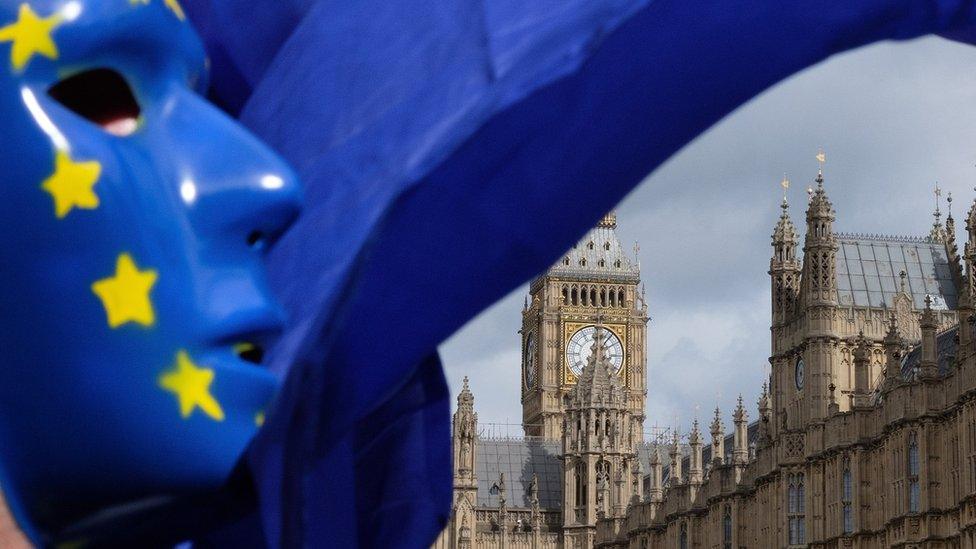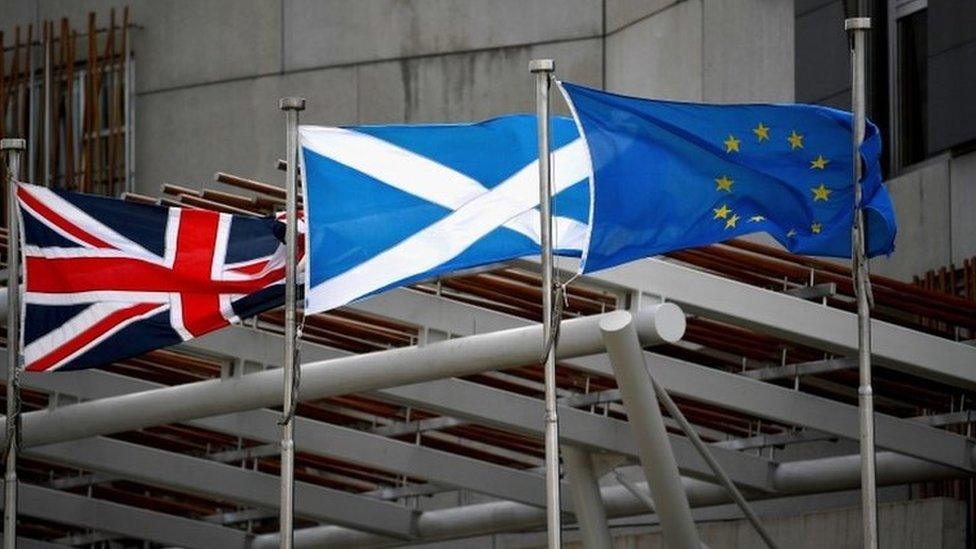Will the Lords try to block Brexit?
- Published

The House of Lords gets it hands on the EU Withdrawal Bill for the first time next week, with extended debates scheduled for Tuesday and Wednesday.
So many peers want to speak that the Lords is starting work early on both days: 11am on Tuesday and 10am on Wednesday.
There's been a lot of fevered talk about the Europhile Empire striking back - there are few enclaves in British politics more pro-EU than the upper house.
But is the House of Lords going to use the debate on the EU Withdrawal Bill to block Brexit?
No.
Peers are far too conscious of their status as an appointed revising chamber to chance their arm by dismissing the verdict of a referendum.
But there will still be plenty for Brexit-watchers to get their teeth into.
Policy somersault?
There will be no major changes to the EU Withdrawal Bill without a change in Labour's party line. Any successful amendment to the bill will require the organised, whipped support of the Labour peers. Labour, as the main opposition party, is the keystone of any anti-government majority in the Lords. So a government defeat will only happen if Labour gets on board. That means any amendment requiring, say, EU customs union membership, or a second referendum, can only happen if Labour does a policy somersault.
Savage verdict
Watch the Lords' internal committees. Peers take the thoughts of their Delegated Powers and Constitution committees very seriously - so when they weigh in on issues like 'Henry VIII powers' or the implications of Brexit on devolution, they carry real weight. This week the Delegated Powers Committee, external warmed up with a savage verdict (in Lords terms) on another Brexit Bill - the Taxation and Cross Border Trade Bill - suggesting that powers to bypass Parliament taken by Henry VIII, "now enjoy a limited revival" under the legislation.

Hard push on devolution?
Watch the devolved assemblies. The Bill goes to the Lords with a promise of government amendments to sort out the way EU powers on issues like agriculture, fisheries and the environment are passed to the Scottish Parliament, the Welsh Assembly and the Northern Ireland Assembly (if it resumes). If peers are unhappy with the deal the government proposes and withhold what's called 'legislative consent', this could embolden them to push hard on devolution-related amendments.
Public mood
Peers will be watching the public and Westminster moods very carefully and will craft the changes they propose to maximise pressure on the government. Will MPs waver in the Commons, if asked to overturn Lords amendments?
The EU Bill is less important than the final Brexit bill, due in October. Parliament has been promised a Bill to implement the final divorce settlement with the EU - and that is a far more promising target for peers (or indeed MPs) who want to push for a second referendum or continued customs union membership. So some of what happens over the EU Withdrawal Bill will be about keeping powder dry for later.
Not Armageddon
So despite the expectation of sound and fury in the two-day 'second reading' debate next week, plus a five week committee stage, this is mostly going to be a rather techy debate about complex process issues. It will matter a lot, but it's not Armageddon.
The government can resort to the Parliament Act - but almost certainly won't. This is a two-year parliamentary session, which is supposed to foreclose the option of forcing the bill through via the Parliament Act.
To activate the Act, legislation needs to have been passed by the Commons in the same form in two successive sessions and Brexit will have happened before the next session.
The government could always change its mind, end the session, prorogue Parliament for a couple of days, and ram the Bill through the Commons again. This would not be a cost-free option, because it would entail losing much of the rest of the current legislative programme, but it is at least theoretically possible.